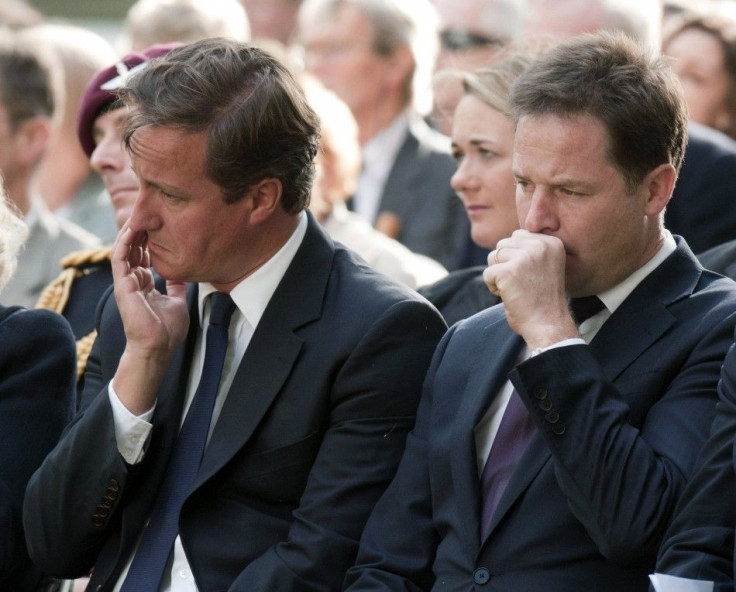Who Would Succeed David Cameron if he Suddenly Died in Office?

A Conservative lawmaker in the United Kingdom has been officially rebuked for his “morbid fascination” over who would succeed Prime Minister David Cameron in the event the latter was killed in a terrorist attack or suddenly died in office, according to British media.
Peter Bone, MP for Wellingborough and Rushden, has repeatedly pointed out that there is no clear succession in place, as there is in the United States where the Vice President would take over if the President suddenly died in office.
The Tory MP asserted that the public and the military would need to know who was in charge during such an emergency and called for the formation of a “line of succession.”
In response to Bone’s questions, the Cabinet Office said that it would not indulge in hypothetical speculation and that appropriate arrangements would be in place to ensure smooth running of government.
Nick Clegg, Deputy Prime Minister and leader of the Liberal Democrats (which forms a coalition government with Cameron’s Conservatives) has become fed up with Bone and asked him to drop his obsession with the decidedly grim topic.
Interestingly, according to British laws, the deputy Prime Minister would not necessarily ascend to the top job in case of a sudden death.
The matter became personal between Bone and Clegg when Bone suggested Clegg (as deputy Prime Minister) was not qualified to take over for Cameron in case a catastrophe struck.
In a session of the House of Commons, Bone asked Clegg: In wishing you a merry Christmas, if the Prime Minister was killed in a terrorist attack, who would take charge of the Government? Would you confirm that it wouldn't be you as you lead a party which has less support than [the UK Independence Party]?
Clegg responded satirically: I receive your season's greetings in the spirit in which they were intended and as you know appropriate arrangements would be made in that very unfortunate event. I have to say that your morbid fascination with the premature death of your own party leader is not really a subject for me, it is a subject for the chief whip.
The Defense Secretary Phillip Hammond also reportedly told Bone that arrangements for a succession are in place, but that he would not divulge them now.
However, Bone would not let the matter rest. On Wednesday, he told BBC: The important thing is if there is a terrorist attack the military must know immediately who is in charge, the country must know immediately who is in charge. If the Prime Minister has been killed in that attack and there is a requirement to take an instant decision, someone needs to be in charge. To say we can wait and get the cabinet together and sit down to decide who is in charge, in this day and age, is patently absurd.
Bone added: It does need to be clear. At the moment, what would happen? Would the defense secretary be in charge, would it be the Cabinet Office, would it be [Foreign Secretary] William Hague or Nick Clegg. Who knows?
Bone also ratcheted up his criticism of Clegg.
It was an absurd response from the Deputy Prime Minister to deflect answering the question which he refused to point blank do, Bone told BBC.
The last British Prime Minister to die in office was Henry John Temple, Lord Palmerston, who expired in October 1865. He was succeeded by John Russell, the first Earl Russell (who had served as foreign secretary to Palmerston and had himself also served a s Prime Minister once before)
© Copyright IBTimes 2024. All rights reserved.











